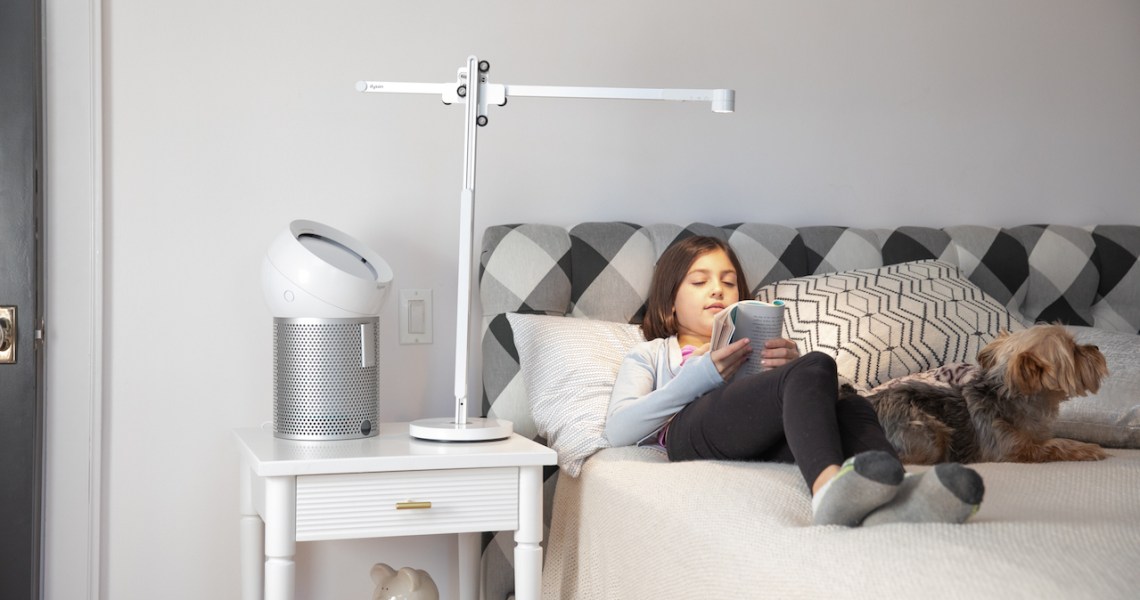Dyson is the latest conglomerate to tap the wellness category.
Following British technology company’s foray from home into beauty with its Supersonic blow dryer in 2016 and its Airwrap curling iron in 2018, Dyson launched on March 20 the Lightcycle light, which is focused on simulating natural light, sleep and overall health and wellness.
The Lightcycle light adjusts its color, temperature and brightness depending on a customer’s age, local daylight and routine through the Dyson Link App. Styles retail for $600 to $900. As of Wednesday, they’re available for pre-order at Dyson.com. They’ll roll out to select retailers like Best Buy beginning April 4.
In January, Dyson reported it had reached $1.4 billion in 2018 profits, up 33 percent from 2017, through the increased demand of its new hair products. The wellness economy, meanwhile, is now valued at $4.2 trillion, according to the Global Wellness Institute.
“Twenty years ago, there were a lot of campaigns about not smoking or healthy eating or exercising. Now people know they should eat better and that smoking is bad — but people are only starting to realize their indoor environment takes a toll on their well-being,” said Sam Bernard, Dyson global category director of the Lightcycle product.
“Light matters not only to our well-being, but also to our task performance,” added Jake Dyson, chief engineer and lighting inventor.
The Lightcycle light is meant to replicate direct sunlight and, therefore, is based on the body’s circadian rhythm. It can be used for any task, from reading to studying, but falling asleep and waking up was an important consideration, said Bernard.
“You input your sleep routine, and you wake up easier and don’t get disturbed during your sleep cycle. It’s intuitive, and it lets our customers know that we are interested in taking care of them and making them feel better,” he said.
Sleep-related beauty and wellness products have been trending in 2019 and an influx of products have been released in the last few months, from Dr. Murad’s Night Fix Enzyme treatment to Algenist’s Genius Sleeping Collagen overnight treatment.
“There’s not been a lot of attention paid to lighting that performs a functional wellness benefit,” said Melisse Gelula, Well+Good co-founder and Leaf Group’s senior vice president of brand for the fitness and wellness division. “It’s definitely a place of innovation for brands if they think about how lighting products, like noise-reducing products, can directly improve consumer’s health and be popularized on a mass scale.”
Dyson’s push into wellness via tech mirrors what fellow tech company Apple did by implementing the trend into its products. For instance, in June 2018, Apple released a digital health dashboard for its iOS 12, designed to help control smartphone use — in that update, a Do Not Disturb feature that helped users go to bed was included.
Even Nokia and Philips are getting in on the action. The former debuted a Wi-Fi-connected mattress pad that tracks sleep patterns and sends that data to the brand’s Health Mate app. The latter released a SmartSleep device, which detects brain activity while one sleeps via a headband-style piece. Both were launched at the Consumer Electronics Show in January.
However, Dyson’s move may not be as seemingly foreign as other technology companies, said Gelula. “Dyson’s been in the wellness space,” she said. “The company’s been successful at re-engineering practical but overlooked household devices, creating products that solve real wellness issues: filtering poor-quality indoor air, vacuums that grab allergens, and blow-dryers that don’t deafen you or cause aching wrists. Healthier beauty and household-cleaning products have been driving tremendous growth in these industries, thanks to an awareness of toxins. Dyson [is] in these two categories, even if they’re not sold in the same store aisle.”
That happens to be the point for Dyson, said Bernard. “Our portfolio is quite varied and wide, but the home is at the core of what we do with our products, so we want to make sure that idea of health and wellness is at that core,” he said. “We think the customer who cares about a clean environment and wants our products are reasonably similar.”




